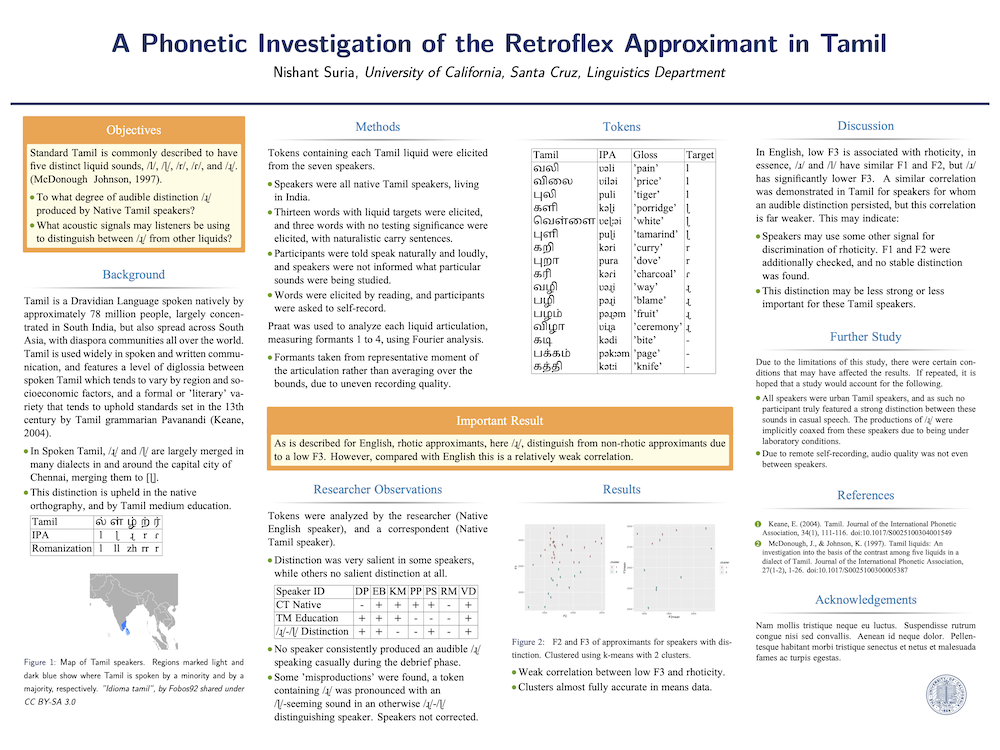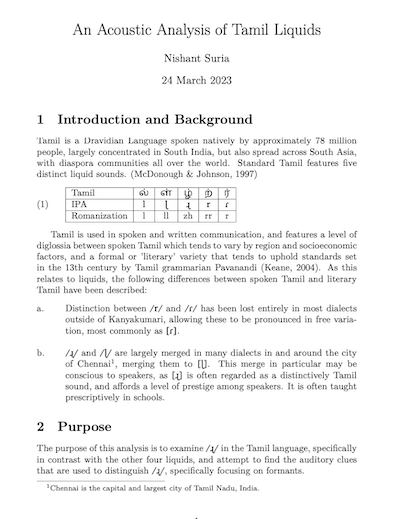For my Phonetics seminar (LING 214 @ UCSC) in Winter 2023, under Grant McGuire, I decided to investigate the relatively unique sound /ɻ/, as it is present in Tamil. Specifically, I sought to answer the following questions.
- To what degree of audible distinction is /ɻ/ produced by Native Tamil speakers? This sound is said to be being lost in Urban Tamil dialects, merging with /ɭ/.
- What acoustic signals may listeners be using to distinguish between /ɻ/ from other liquids? For English, the third formant (F3) is used to distinguish /ɹ/ from /l/, lower F3 being strongly correlated with rhoticity. Does this correlation hold for languages with a richer liquid inventory?
I assembled a pilot study, using seven speakers, performed formant analysis using Praat, focusing on F3. Speakers were given words, with carry sentences, and asked to self-record pronunciations. My methods and findings are outlined in a term paper, accessible to the right.
I was invited to present my findings at the Linguistics Undergratuate Research Conference (LURC) at UCSC, for which I fortified my analysis and used R to perform k-means clustering analysis to justify correlation. I presented the poster shown at right.
My key findings and conclusions are summarized:
- Weak correlation was found between low F3 and rhoticity. The k-means analysis supports the hypothesis that F3 is associated with the /ɻ/ ~ /ɭ/, however this correlation is not nearly as strong as American English.
- No correlation was found with F1 or F2. The articulations of /ɻ/ ~ /ɭ/ seemed to not be readily distinguishable by F1 or F2.
- The distinction between /ɻ/ and /ɭ/ was only salient some speakers. Only four out of seven speakers had an audible distinction. (Conclusions above only refer to the productions of these speakers.)
- No speaker readily produced the distinction in running, spoken Tamil. During the debrief phase, conducted in Tamil, the correspondent noted that no speaker actually distinguished /ɻ/ and /ɭ/ reliably, replacing nearly all articulations with /ɭ/.

